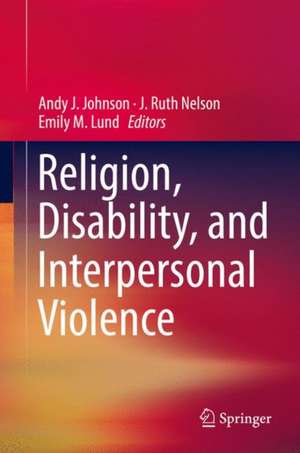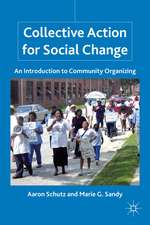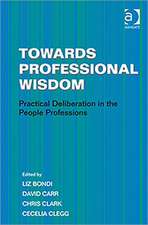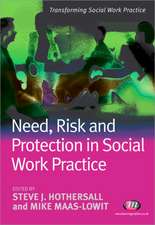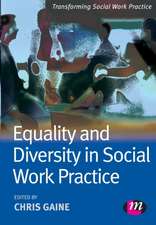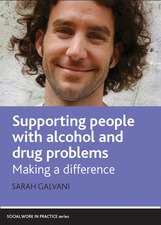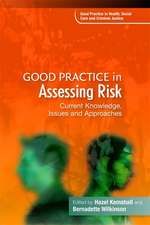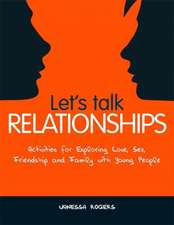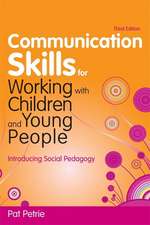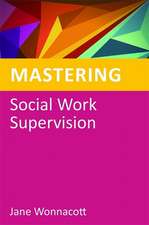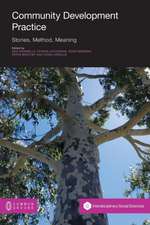Religion, Disability, and Interpersonal Violence
Editat de Andy J. Johnson, J. Ruth Nelson, Emily M. Lunden Limba Engleză Hardback – 9 aug 2017
Among the topics featured:
- From barriers to belonging for people with disabilities: Promising pathways toward inclusive ministry.
- Empowering womenwith intellectual disabilities to resist abuse in interpersonal relationships.
- Race, culture, and abuse of persons with disabilities.
- Ableist shame and disruptive bodies: Survivorship at the intersection of queer, trans, and disabled existence.
- From the narratives of survivors with disabilities: Strengths and gaps between faith-based communities and domestic violence shelters.
| Toate formatele și edițiile | Preț | Express |
|---|---|---|
| Paperback (1) | 391.29 lei 38-44 zile | |
| Springer International Publishing – 24 iun 2018 | 391.29 lei 38-44 zile | |
| Hardback (1) | 475.28 lei 6-8 săpt. | |
| Springer International Publishing – 9 aug 2017 | 475.28 lei 6-8 săpt. |
Preț: 475.28 lei
Preț vechi: 559.16 lei
-15% Nou
Puncte Express: 713
Preț estimativ în valută:
90.95€ • 95.39$ • 75.71£
90.95€ • 95.39$ • 75.71£
Carte tipărită la comandă
Livrare economică 01-15 aprilie
Preluare comenzi: 021 569.72.76
Specificații
ISBN-13: 9783319569000
ISBN-10: 3319569007
Pagini: 227
Ilustrații: XXIII, 230 p. 4 illus.
Dimensiuni: 155 x 235 x 22 mm
Greutate: 0.54 kg
Ediția:1st ed. 2017
Editura: Springer International Publishing
Colecția Springer
Locul publicării:Cham, Switzerland
ISBN-10: 3319569007
Pagini: 227
Ilustrații: XXIII, 230 p. 4 illus.
Dimensiuni: 155 x 235 x 22 mm
Greutate: 0.54 kg
Ediția:1st ed. 2017
Editura: Springer International Publishing
Colecția Springer
Locul publicării:Cham, Switzerland
Cuprins
Interpersonal Violence Survivors with Disabilities: Considerations for Faith-Based Organizations.- Bronfenbrenner’s Theoretical Framework Adapted to Women with Disabilities Experiencing Intimate Partner Violence.- From Barriers to Belonging for People with Disabilities: Promising Pathways Toward Inclusive Ministry.- Partnering with People with Disabilities to Prevent Interpersonal Violence: Organizational Practices Grounded in the Social Model of Disability and Spectrum of Prevention.- Empowering Women with Intellectual Disabilities to Resist Abuse in Interpersonal Relationships: Promising Interventions and Practices.- Race, Culture, & Abuse of Persons with Disabilities.- Tough Guys: Facing Violence against Men with Disabilities.- Breaking the Silence: Empowering Deaf and Hard of Hearing Survivors of Domestic Violence.- Socioeconomic Status and Geographical Rural Settings’ Contribution to Oppression of Women with Disabilities who Experience Gender Violence.- Ableist Shame and Disruptive Bodies: Survivorship at the Intersection of Queer, Trans, and Disabled Existence.- Inclusive, Culturally Competent Practices for Christian Faith Leaders in Responding to IPV Survivors with Disabilities.- From the Narratives of Survivors with Disabilities: Strengths & Gaps Between Faith Based Communities & Domestic Violence Shelters.- Keeping an Open Door: Past Problems, Best Practices, and Future Directions for Working with Interpersonal Violence Survivors with Disabilities.
Notă biografică
Andy J. Johnson, Ph.D., teaches at Bethel University in the graduate program in counseling as well as the undergraduate programs in psychology and religious studies. His research interests are in the areas of gender violence prevention, religious predictors of domestic violence and rape myth acceptance, and trauma and resiliency. He earned an MA and Ph.D. in counseling psychology from the University of Notre Dame. A previous volume he edited, Religion and Men's Violence Against Women, is also available through Springer.
J. Ruth Nelson, Ph.D., co-directs the Academic & Enrichment Support Center and teaches at Bethel University in the undergraduate program in developmental psychology and disability studies. She is a nationally certified school psychologist whose research interests are in the areas of developmental disabilities, psychoeducational/psychosocial/community interventions for individuals with disabilities across the life span, and faith integration with disability studies.
Emily M. Lund, Ph.D., is a postdoctoral fellow at the Center for Psychiatric Rehabilitation at Boston University. She has presented extensively at professional conferences and has published over 40 peer-reviewed articles. Her primary research interests are violence against people with disabilities across the lifespan; suicide and non-suicidal self-injury, particularly as it relates to trauma and disability; and the experiences of post-secondary and graduate students with disabilities.
J. Ruth Nelson, Ph.D., co-directs the Academic & Enrichment Support Center and teaches at Bethel University in the undergraduate program in developmental psychology and disability studies. She is a nationally certified school psychologist whose research interests are in the areas of developmental disabilities, psychoeducational/psychosocial/community interventions for individuals with disabilities across the life span, and faith integration with disability studies.
Emily M. Lund, Ph.D., is a postdoctoral fellow at the Center for Psychiatric Rehabilitation at Boston University. She has presented extensively at professional conferences and has published over 40 peer-reviewed articles. Her primary research interests are violence against people with disabilities across the lifespan; suicide and non-suicidal self-injury, particularly as it relates to trauma and disability; and the experiences of post-secondary and graduate students with disabilities.
Textul de pe ultima copertă
This groundbreaking reference offers mental health professionals a rigorous, nuanced guide to working with abuse survivors with disabilities in religious communities. Expert contributors unravel complex intersections of disability, religion, and identity in the context of gender violence (including spotlights on racial, gender, and sexual minorities, Deaf persons, and men), and offer survivor-centered best practices for intervention. Chapters explore how responses from clergy and other religious figures may sometimes prevent survivors from seeking help, and how faith leaders can help to empower survivors. The concepts and research presented here support multiple purposes, from removing barriers to survivor services to working with religious communities to be more inclusive and transparent.
Among the topics featured:
Among the topics featured:
- From barriers to belonging for people with disabilities: Promising pathways toward inclusive ministry.
- Empowering women with intellectual disabilities to resist abuse in interpersonal relationships.
- Race, culture, and abuse of persons with disabilities.
- Ableist shame and disruptive bodies: Survivorship at the intersection of queer, trans, and disabled existence.
- From the narratives of survivors with disabilities: Strengths and gaps between faith-based communities and domestic violence shelters.
Caracteristici
Examines the interface between religious culture and the abuse of persons with disability Covers diverse models of disability Utilizes a transformative justice framework Provides guidance in working with religious communities Includes supplementary material: sn.pub/extras
